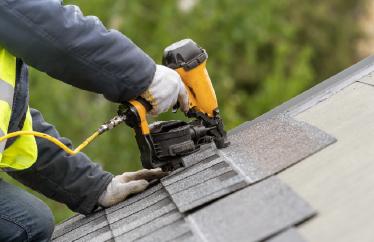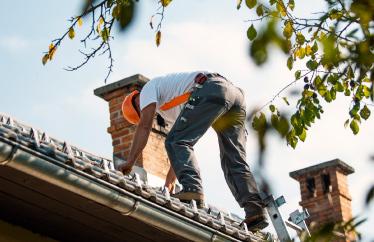Anyone who has had a leak before knows the feeling. That mix of panic, confusion and anger whenever unexpected damage pops up in your favorite place, home. The last place you want to bring you stress is your home.
We have combed through our data and have found the top 5 reasons water damage may pop up. Here they will be explained, and we even threw in some tips you can proactively use to prevent water damage in the first place, how you can spot it early, so it doesn’t evolve into permanent damage, as well as some advice on best practices for when water damage does occur.
At Hippo, water damage was the top claims filed last year. But the good news is that in more than 90% of cases, water damage is preventable.CLICK TO TWEET
Looking out for plumbing problems, leaks and other issues is key to preventing water from destroying your home.
Plumbing issues
Water damage is often caused by plumbing issues and it is easy to see, or not see why. Out of sight, out of mind. That’s why it’s important to inspect the plumbing systems in your home at least once a year to ensure that there aren’t any problems with hoses or pipe joints. While inspecting, keep in mind that water pipes do have a certain lifespan. Brass pipes can last for as many as 70 years while copper pipes can last for more than 50 years. The average lifespan for galvanized steel pipes is often between 20 and 50 years, while drain pipes are usually made of either cast iron (which can last for as many as 100 years) or polyvinyl chloride (PVC). Properly maintained PVC pipes can last indefinitely. Factoring in the age of your pipes is important to any inspection or educating your licenced plumber if you decide to bring in professional help.
Have you noticed your water bill increasing? If it is unusually high, that might be an indication of an undetected leak. Buying a water leak sensor that sends alerts to your phone is one way to safeguard your home. You can also check around your toilets, tubs, showers and sinks for any soft spots or moisture. Keep an eye out for loose tiles as well. If you have a dishwasher or a refrigerator with a water line, look for warped or discolored floorboards.
Washing machine leaks
Unless you’re doing laundry (or trying out some of these laundry games), you probably don’t think twice about your washing machine. But if it breaks down, the results could be quite annoying. For example, if the supply hose is damaged or has a faulty connection to the wall or washing machine, more than 600 gallons of water could potentially spill out within an hour. Most people notice this before this amount of water is released, but we have all thrown in a load of laundry and started a project somewhere else in the home. Any amount of water could lead to significant damage, especially if your washing machine is located on the second floor of your home.
To prevent water damage, you should replace your washing machine supply hose at least once every five years. Also, resist the temptation to overload your washing machine. Constantly stuffing too many clothes into your washing…CLICK TO TWEET
To prevent water damage, you should replace your washing machine supply hose at least once every five years. Also, resist the temptation to overload your washing machine. Constantly stuffing too many clothes into your washing machine could loosen gaskets and valves or cause cracks. Take good care of your washing machine and your washing machine will take good care of you.
Bursting water pipes
During severely cold winters, pipes can freeze over and burst. That’s more likely to happen if you have certain types of pipes, such as swimming pool supply lines, water sprinkler lines and pipes with minimal insulation that run against exterior walls.
If temperatures tend to freeze in your area, be sure to protect your pipes. Insulate both hot and cold water pipes using heat tape or pipe sleeves available in your home improvement store. If you have water supply lines in your garage, keep the garage door closed as often as possible. Open kitchen and bathroom cabinet doors to allow warmer air to circulate. If you plan to spend some time away from your home, leave the heat on and set your thermostat to at least 55 degrees. You can’t control the weather, but you can put up a good fight to save your pipes.
Aging water heaters
We have all seen the scene in the movie where the family's basement is flooded by 2 ft or more and the father is yelling and cursing the water heater. Water heaters have a shelf life. Inspect your records to know exactly when it was installed and make a note physically on the water heater itself as well as in your phone to have it replaced every 10 years. It is also worth noting that if you are looking to upgrade, a tankless water heater can last as many as 20 years.
Not sure how to find out how old your water heater is? You can find out how old your water heater is by looking up the serial number on the manufacturer’s sticker near the top of the water heater. Age isn't the only element that can cause a water heater malfunction, so regularly inspect it to check for signs of moisture build-up, mold or corrosion. If your water isn’t as hot as it used to be or there’s rust coming from your faucets, it’s time to call Hippo Home Care if you are a Hippo customer or your favorite plumber/ water heater specialist.
Inclement weather
Snow may look lovely. But if your home is not weatherproof, a bad snowstorm could damage your roof, walls and ceiling. Make sure your home is ready for inclement weather by ensuring that your rain gutters and downspouts are clean. You should also check doors and windows to ensure that your caulking oe sealing isn't cracked or damaged.
If it normally snows where you live, be wary about the formation of ice dams on your roof. This happens when the heat inside your home causes water to melt in the middle of your roof. The water then refreezes near the edges, forming a dam that prevents melting snow from draining off the roof. The water that backs up can leak into your home and damage ceilings, walls and other parts of your home. To prevent ice dams from forming, insulate your attic to keep heat from rising and reaching the roof.
And we haven't even gotten to hail yet. While people who live in "Hail Alley" know the damage that hail and those severe storms can do, hail can occur anywhere in the country. Before the thunder and lightning, there are some expert tips and tricks that can get you prepped for hail season but when it comes specifically to roofs, it is important to remember how important they are and the costly damage that is done year after year. What looks like a few pockmarked shingles on the surface may actually be exposing the asphalt layer underneath. This can loosen the bond between the asphalt layer and remaining granules, which, after the summer’s high temperatures, causes the shingle to expand and contract, further compromising any damaged areas. When the winter months hit, the damaged shingles crack in colder weather, causing holes where water can leak down into the roof, making it more susceptible to being torn off in high winds.
So first thing first, closely inspect your roof and make any repairs before the season hits.
Roofs should be inspected annually. A professional roof contractor can look for exterior and interior warning signs that your roof’s condition may lead to water damage, including cracked or missing shingles and areas where water is…CLICK TO TWEET
Roofs should be inspected annually. A professional roof contractor can look for exterior and interior warning signs that your roof’s condition may lead to water damage, including cracked or missing shingles and areas where water is prone to pool. Hippo Home Care is a complimentary service provided to Hippo customers, so make sure to reach out when it is inspection time. If you aren't a Hippo customer yet, an inspection can cost several hundred dollars, but in exchange for your peace of mind, it’s priceless.
The perks of having insurance
There are many steps you can take to prevent water from damaging your home. When you can’t take matters into your own hands, you can feel relieved knowing that your homeowners insurance policy covers water damage. Hippo provides a free, cutting-edge water leak sensor with every homeowners insurance policy.
Have questions about finding the right homeowners insurance coverage for your needs? Want an instant quote? Speak with a Hippo specialist today.




